Health
Fiber Supplements: Boosting Digestive Health and Overall Wellness
Published
1 year agoon
By
Admin
Fiber supplements like psyllium husk, methylcellulose, and inulin can improve digestive health, reduce cholesterol, and help regulate blood sugar.
The Importance of Fiber in a Healthy Diet
Dietary fiber is an essential component of a healthy diet, contributing to optimal digestive function, heart health, and weight management.
Found in plant-based foods such as fruits, vegetables, whole grains, and legumes, fiber plays a critical role in maintaining regular bowel movements, reducing the risk of chronic diseases, and even supporting metabolic health.
However, many people struggle to meet the recommended daily fiber intake—25 grams for women and 38 grams for men.
For those who find it challenging to consume enough fiber through food alone, fiber supplements can be an excellent alternative.
These supplements come in various forms and can offer numerous health benefits.
In this article, we’ll dive into the different types of fiber supplements available, their potential health benefits, and how to use them safely.
What Are Fiber Supplements?
Fiber supplements are over-the-counter products that provide additional fiber to your diet.
They are typically derived from plant fibers and come in various forms, such as powders, capsules, tablets, and even gummies.

These supplements contain either soluble or insoluble fiber, or a combination of both, which affect the body differently.
Also Read: Best Probiotics for Women: Top Choices for Gut and Overall Health
Soluble Fiber
Soluble fiber dissolves in water, forming a gel-like substance in the digestive system. It helps to lower cholesterol levels, regulate blood sugar, and slow down digestion, leading to increased satiety.

Psyllium husk, found in supplements like Metamucil, is a well-known source of soluble fiber.
Insoluble Fiber
Insoluble fiber, on the other hand, does not dissolve in water and adds bulk to the stool, promoting regular bowel movements.
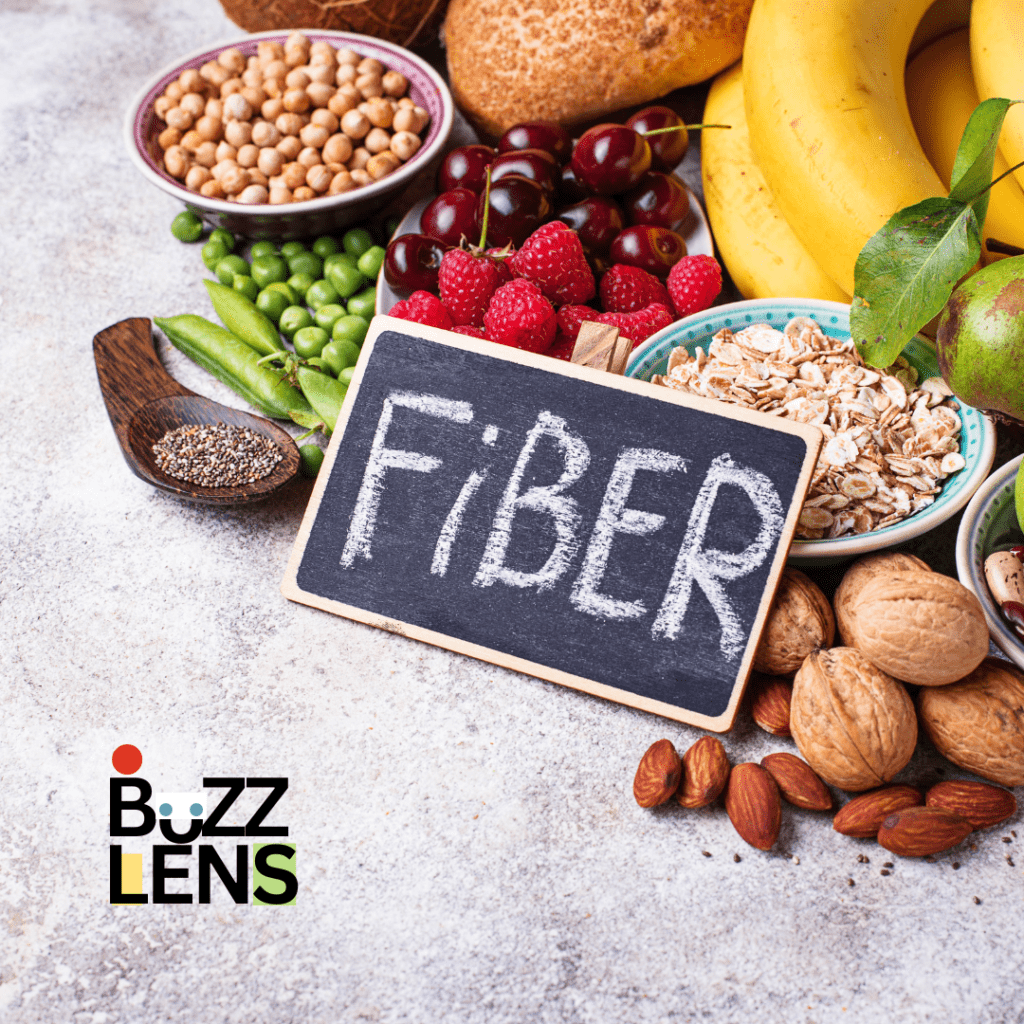
It is primarily responsible for alleviating constipation and maintaining bowel health. Methylcellulose, a common ingredient in supplements like Citrucel, is a form of insoluble fiber.
Health Benefits of Fiber Supplements
Adding fiber supplements to your daily routine can provide several health benefits, particularly if you’re not meeting your fiber needs through diet alone.
Here’s a look at some of the key benefits.
Improved Digestive Health
One of the primary benefits of fiber supplements is their ability to support digestive health. Soluble fiber, such as psyllium, can help regulate bowel movements by softening stools and making them easier to pass.
Insoluble fiber helps move waste through the digestive tract more efficiently, preventing constipation and promoting regularity.
Heart Health and Cholesterol Control
Soluble fiber, especially from sources like psyllium husk, has been shown to reduce LDL cholesterol levels (the “bad” cholesterol) by binding to cholesterol in the digestive tract and helping to eliminate it from the body. This can contribute to a reduced risk of heart disease and support overall cardiovascular health.
Also Read: Why Steady-State Cardiovascular Exercise Is Key to Long-Term Fitness
Blood Sugar Regulation
For people with type 2 diabetes or those at risk of developing the condition, soluble fiber can help stabilize blood sugar levels.
Fiber slows down the absorption of sugar in the bloodstream, which helps prevent spikes in blood glucose after meals.
Regular use of fiber supplements, especially psyllium, has been linked to improved blood sugar control.
Also Read: Diabetes: Which Is Worse—Type 1 or Type 2?
Weight Management
Fiber supplements can aid in weight management by increasing feelings of fullness and reducing overall calorie intake.
Because fiber slows down digestion, it can help you feel fuller for longer, reducing the urge to snack between meals. This is particularly beneficial for those following weight loss programs.
Gut Health
Certain types of fiber supplements, such as inulin, serve as prebiotics, which help feed the beneficial bacteria in the gut.
A healthy balance of gut bacteria is essential for maintaining overall digestive health, enhancing immune function, and even influencing mood and mental health.
Types of Fiber Supplements
There are various types of fiber supplements on the market, each offering different benefits. Knowing which type to choose depends on your specific health needs and any conditions you may be addressing.
Psyllium Husk
Psyllium husk is one of the most popular and effective fiber supplements available. It’s a soluble fiber that helps promote bowel regularity, lowers cholesterol, and regulates blood sugar levels.

Psyllium is commonly found in products like Metamucil and can be mixed with water or juice for easy consumption.
Methylcellulose
Methylcellulose is an insoluble fiber that helps with constipation by increasing the bulk of stools and stimulating bowel movements.
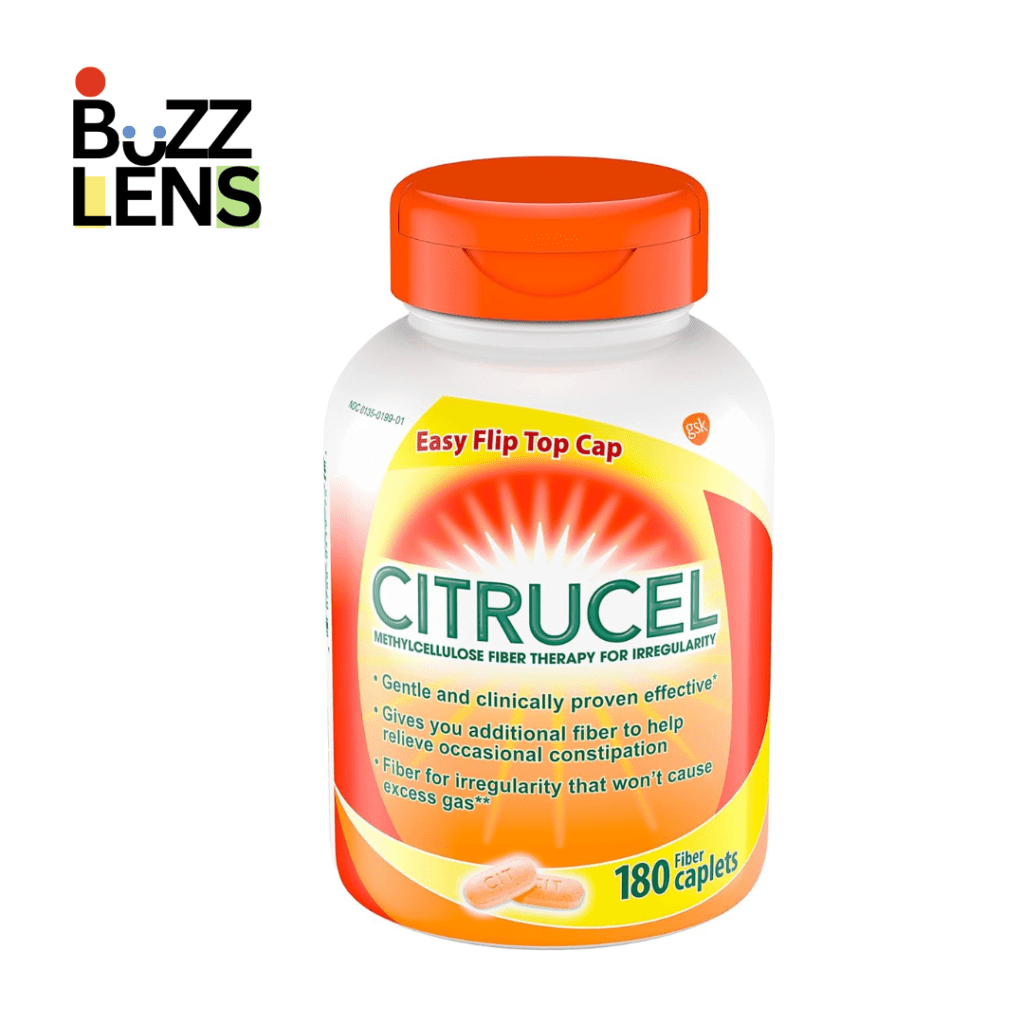
It’s found in products like Citrucel, which is known for not causing excess gas or bloating—an advantage for those sensitive to other fiber supplements.
Inulin
Inulin is a soluble fiber that also acts as a prebiotic, encouraging the growth of healthy bacteria in the gut.
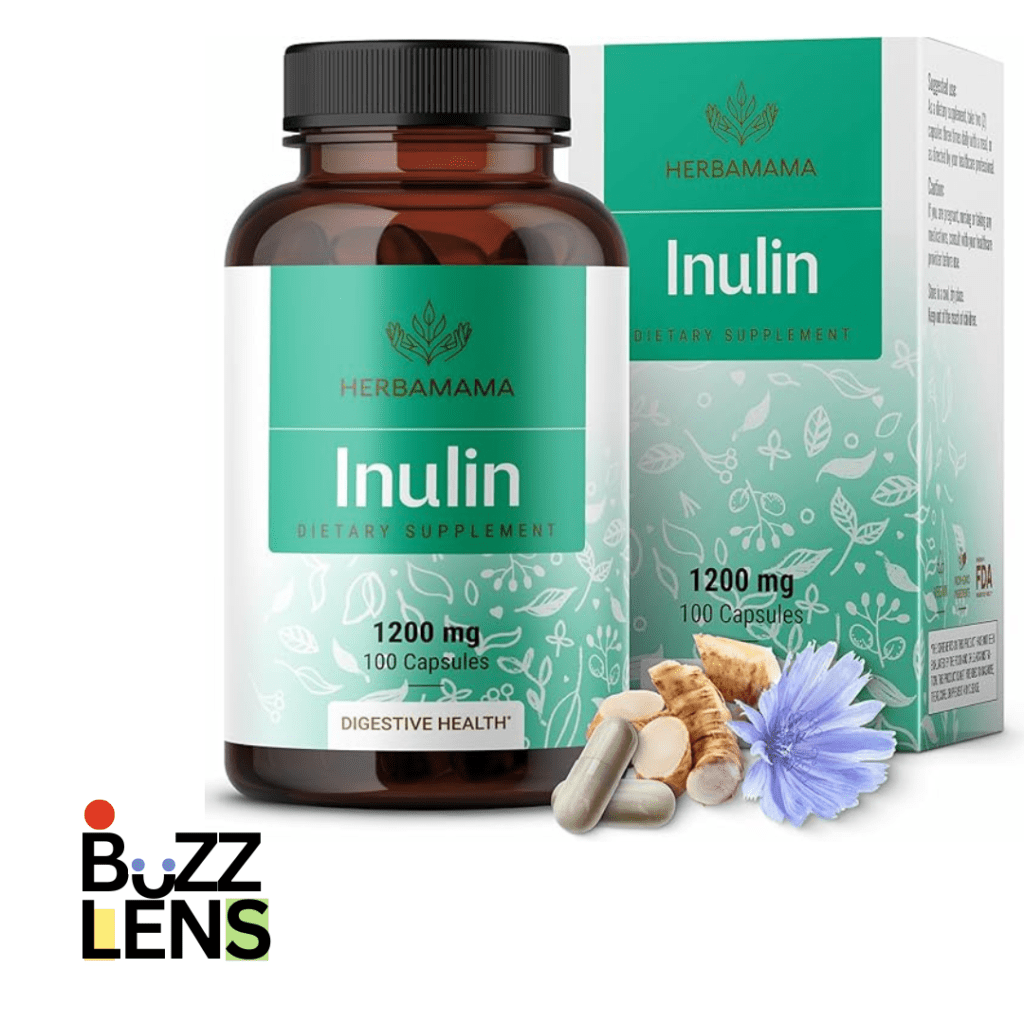
Found naturally in foods like chicory root and bananas, inulin is often added to fiber supplements to support digestive health and improve gut flora.
Wheat Dextrin
Wheat dextrin is a soluble fiber that can be easily mixed into both hot and cold foods and beverages.

Found in products like Benefiber, it is a versatile fiber source that dissolves completely in liquids and doesn’t thicken, making it easy to incorporate into your daily diet.
Guar Gum
Guar gum is a soluble fiber derived from the seeds of the guar plant.
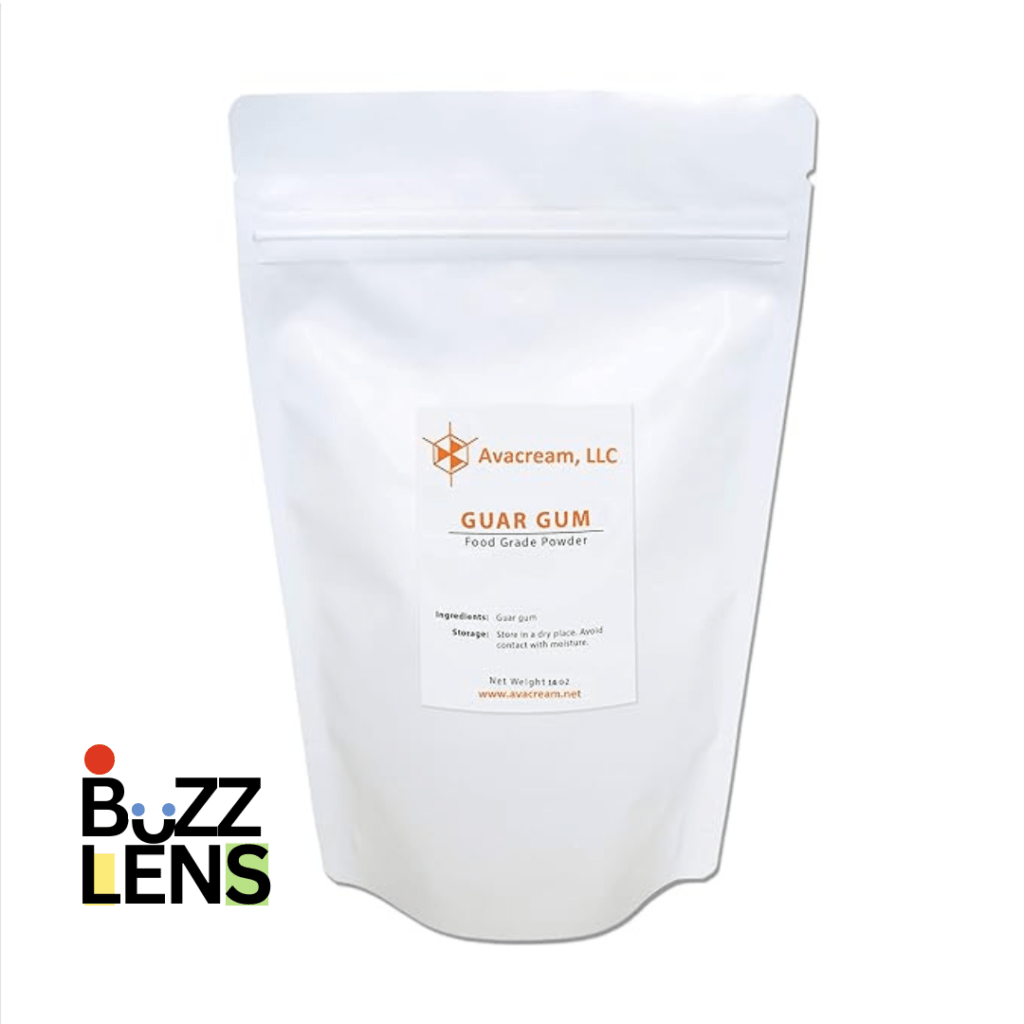
It’s often used as a thickening agent in foods but can also be taken as a supplement to promote digestive health and control blood sugar levels.
How to Use Fiber Supplements Safely
While fiber supplements offer numerous health benefits, it’s important to use them correctly to avoid potential side effects, such as bloating, gas, or abdominal discomfort.
Here’s how to incorporate them into your routine safely.
Start Slowly
If you’re new to fiber supplements, it’s best to start with a small dose and gradually increase it. This allows your body to adjust to the increased fiber intake and minimizes the risk of digestive discomfort.
Stay Hydrated
When taking fiber supplements, it’s essential to drink plenty of water. Fiber absorbs water in the digestive tract, so staying hydrated helps prevent constipation and ensures the fiber can work effectively.
Follow Directions
Each fiber supplement comes with specific usage instructions, including how much to take and when. Following the recommended dosages will help you avoid side effects and maximize the benefits of the supplement.
Also Read: How Much CRP Level Is Dangerous? Understanding When CRP Levels Signal Health Risks
Potential Side Effects and Precautions
Although fiber supplements are generally safe for most people, there are a few potential side effects to be aware of, especially when first starting out.
Bloating and Gas
One of the most common side effects of fiber supplements, especially soluble fibers like psyllium and inulin, is bloating and gas. This occurs as the fiber ferments in the gut, producing gas as a byproduct.
Digestive Discomfort
Some individuals may experience abdominal cramping or diarrhea when taking fiber supplements, particularly if they start with a large dose. Reducing the amount and increasing it gradually can help minimize these symptoms.
Medication Interactions
Fiber supplements can interfere with the absorption of certain medications, including antidepressants, cholesterol-lowering drugs, and diabetes medications.
If you are on medication, it’s important to consult your healthcare provider before adding fiber supplements to your routine.
Who Should Take Fiber Supplements?
Fiber supplements can be beneficial for a wide range of individuals, particularly those who struggle to meet their daily fiber requirements through diet alone.
People With Digestive Issues
Those dealing with constipation, irritable bowel syndrome (IBS), or other digestive disorders can benefit from adding fiber supplements to their daily regimen. Fiber can help regulate bowel movements and alleviate symptoms of these conditions.
Individuals With High Cholesterol
For people looking to manage high cholesterol levels, supplements like psyllium husk can be an effective tool for lowering LDL cholesterol and improving heart health.
Diabetics
People with diabetes can use fiber supplements to help regulate blood sugar levels. Soluble fibers, such as psyllium and guar gum, slow the absorption of sugar, which can help prevent spikes in blood glucose.
Weight Management
Individuals who are trying to lose weight or manage their appetite may find fiber supplements helpful, as they promote feelings of fullness and reduce calorie intake.
The Right Fiber Supplement for Your Health Needs
Fiber supplements offer a convenient and effective way to boost daily fiber intake, supporting digestive health, heart function, and weight management.
With a variety of options available, from psyllium husk for cholesterol management to inulin for gut health, there’s a fiber supplement suited for every need.
Before starting any supplement, it’s essential to follow best practices for safe use, including starting with small doses and staying well-hydrated.
Consulting with a healthcare provider is also recommended, especially for individuals with underlying health conditions or those taking medications.
You may like
Health
Level up casino reviews Australia edition
Published
7 months agoon
July 22, 2025By
Wilson MarkLevel up casino reviews Australia edition
In this blunt review, we break down everything you should know about level up casino reviews for Australian players. Find out what matters, which platforms to consider, and pitfalls to avoid. If you’re thinking about joining or comparing online casinos, this is your guide. Get facts, not hype.
Popular Australian Casinos at a Glance
Pokies Madness: Grab 250% Up to $400 & 100 FS
Casino in Your Pocket: 110% Up to $100 & 120 Spins
Pokies Paradise: 200% Up to $2,000 + 150 Free Spins
Start Winning: 300% Bonus Up to $1000 & 75 Spins
Pay with PayID: 50% Match to $400 & 200 Free Spins
Go Big: 175% Welcome Up to $150 & 75 Spins
30% Cashback Every Week – Up to $100 Back
Jump In: 120% Bonus Up to $250 & 40 Free Spins
Aussie Players Welcome: 50% Up to $250 + 60 FS
Welcome Gift: 150% Match Up to $400 + 200 FS Included
Free Play: $100 Bonus + 15 Spins Without a Deposit
Get Started: 300% Bonus Up to $2500 + 150 Free Rounds
Intro Offer: 80% Bonus Up to $400 & 60 Free Spins
Stack the Deck: 300% Match Up to $100 & 75 Spins
Welcome Gift: 150% Match Up to $400 + 200 FS Included
Unlock 20 Free Spins on Your First Deposit
Blackjack Bonus: 80% Up to $750 on Your First Deposit
VIP Lounge Access: 175% Up to $1000 + 100 FS
Midweek Reload: 30% Bonus Up to $300 & 250 FS
High Roller Special: 175% to $3000 + 25 Free Spins
Best slot games on level up casino reviews
Online pokies and slots offer fast, exciting gameplay with instant outcomes and the possibility of sizable rewards. Below, you’ll find a curated selection of the hottest online pokies and slots trending among Australian players. Try your luck or explore new titles directly from home.
Top Online Casino Services and Games
Licensed Australian casinos deliver diverse services, from real money pokies and live-dealer games to poker tables, blackjack, and original skill-based experiences. Level up casino reviews cover which providers offer the best mix. Choose based on your preferences for big wins, variety, or strategy.
Popular Australian Casinos at a Glance
- LevelUp Casino
- Punt Casino
- National Casino
- Casino Rocket
- Fair Go Casino
- Joo Casino
- King Johnnie Casino
Top Online Casino Services and Games
- Online poker rooms
- Real money pokies
- Progressive jackpots
- Live dealer tables
- Blackjack tournaments
- Roulette games
- Baccarat and more
Best Slots and Pokies You Can Play
- Wolf Gold
- Big Bass Bonanza
- Buffalo King
- Gates of Olympus
- Starburst
- Temple Tumble
- Sweet Bonanza
- Book of Dead
- Money Train 2
- Aztec Magic
How Deposits and Withdrawals Work
Australian casino sites make depositing simple with debit cards, e-wallets, and crypto options. Withdrawals usually take from several hours up to five days, with verification needed for first-time requests. Daily and weekly withdrawal limits apply. Review each casino’s financial terms before signing up.
| Payment Method | Deposit Time | Withdrawal Speed |
|---|---|---|
| Visa/MasterCard | Instant | 1-3 days |
| Neosurf | Instant | N/A |
| Bitcoin | Instant | Within 1 day |
| Skrill | Instant | 1-2 days |
Mobile Casino Experience in Australia
Most Aussie online casinos offer sleek mobile sites or dedicated apps for Android and iOS. Features include mobile-only bonuses, quick game loading, and fast deposits. All major pokies and live games work on smartphones and tablets.
Bonuses and Promotions
Welcome packages, no deposit spins, and reload bonuses boost your bankroll. Wagering requirements typically range from 20x to 50x. Always check bonus expiry and eligible games. VIP rewards systems offer cashback, fast payouts, and event tickets for regulars.
Security and Fair Play Ensured
Look for gambling operators licensed by international authorities. All games should use RNG technology for fairness. SSL encryption protects your data. Independent audits are a positive sign. Customer funds should stay segregated from operations accounts.
Customer Support and Player Care
Quality live chat is now standard. Hotlines and email support offer extra layers. Expect a response within minutes during Aussie business hours and detailed FAQ sections for self-help. Multilingual staff are available at leading casino brands.
Responsible Gambling Tools & Advice
Responsible gaming tools include personal deposit caps, self-exclusion, and time trackers. Accredited sites promote responsible gambling organisations. Early signs of unsafe behaviour trigger notifications or account limitations. Seek help if you feel your play is out of control.
Reading the Fine Print: Terms & Conditions
Always read the small print regarding playthroughs, max withdrawal limits, and restricted games. Terms may be updated frequently. Some casinos restrict bonus play for certain games or regions. Careful reading avoids misunderstandings and disappointment.
FAQ – level up casino reviews in Australia
What is level up casino reviews?
Level up casino reviews are independent opinions, overviews, and ratings of major online casinos available in Australia, focusing on features, reliability and user experience.
Are online casinos safe for Australians?
Licensed online casinos use security protocols and fair play policies, but always check for proper regulation before playing.
Can I win real money at Australian online casinos?
Yes, you can win and withdraw real AUD winnings if you play at certified Australian-friendly sites.
Which payment methods can I use?
Common methods include Visa, MasterCard, Neosurf, cryptocurrency, bank transfer, and popular e-wallets.
What are typical bonus wagering requirements?
Most sites ask for wagering your deposit and bonus 20-50 times before withdrawal.
Is there a best time to play online pokies?
No specific time guarantees better odds, as pokies use random number generation for each spin.
Best Online Casinos in Australia 2024
Australia’s iGaming landscape is thriving with fresh brands, innovative games and player-first bonuses, making it a great time to explore top casino sites. Whether you’re into pokies, live tables or sports betting action, the following brands are popular choices among Aussie punters. Get to know which ones stand out and why.
Aussie Play Casino Experience
Aussie Play is well known for its laid-back style and huge pokies library. Players in Australia can expect a very generous welcome bonus, easy registration and local-friendly banking options. Their mobile site works fluently on even basic phones. Customer service is on hand 24/7 via live chat.
Bizzo Casino in the Australian Market
Bizzo has quickly become a favourite due to its fast payments and over 3,000 pokies from top software providers. Aussie players can use AUD for deposits and withdrawals, and weekly free spins offers help keep the excitement high. Their tournaments are a must-try for slot fans.
Caesars Casino Down Under
Caesars, an international casino giant, also accepts Australian players with a sophisticated selection of games. From classic table games to immersive live dealer experiences, it brings a slice of Las Vegas straight to your home. Advanced encryption ensures safe and private gameplay.
Casino Swish for Pokies Fans
Casino Swish makes a mark with its slick interface and huge selection of Aussie-themed pokies. Players can join loyalty programs and claim reload bonuses tailored to regular players. Its payment process is streamlined for local convenience and quick payouts.
Casinonic: Trusted Option for Australians
Australians frequently recommend Casinonic for its speedy withdrawals, secure transactions, and quality games from Pragmatic Play, Microgaming and more. Promotions are frequent and the supporting team is responsive, ensuring an easy experience for new players.
Gets Bet: Sports Betting and More
Gets Bet wraps casino, live casino and sports betting in a single platform, ideal for Aussies who like to combine pokies and wagering. Real-time odds and a seamless mobile app attract sports enthusiasts across the country.
Golden Tiger Casino’s Reputation
Golden Tiger stands out with its big progressive jackpots, frequent bonuses and a reliable Aussie support team. Its desktop and mobile sites both run smoothly, making it a long-standing favourite for Australian casino fans.
High Roller Action
If you like higher stakes, High Roller is tailored for VIP play. Its lavish perks, cashbacks and high deposit limits attract serious punters. Withdrawal times are among the fastest in the segment.
Other Noteworthy Australian Casino Sites
The following brands also have a loyal following in Australia:
- Interwetten brings strong betting options and casino games with fast pay-outs.
- Merkur features top pokies and unique branded games with easy navigation.
- Planet7Casino is famous for on-the-spot cash bonuses and round-the-clock assistance.
-
Poker Star delivers robust poker tournaments and interactive table experiences.
- Royal Ace offers both pokies and table games; attractive for both casual and experienced players.
- SlotJoint gives hundreds of pokies and flexible payment solutions for locals.
- SlottyWay is popular for its exciting slot tournaments and weekly reload bonuses.
- Sportingbet merges betting with casino action, supporting a great range of Aussie sports and slots.
- ThePokies features a local-first approach with loads of Australiana slots.
Uptown Aces and WildCardCity
Uptown Aces focuses on generous welcome bonuses, secure payment options and unique slot themes. WildCardCity is all about urban glamour with VIP privilege schemes and handy support, ensuring top rates of player satisfaction.
WynnBet
WynnBet is gaining pace with mobile-first design and exciting promotions. Its tailored sports and casino offers appeal to players who demand both action and safety.
Responsible Gambling for Australians
Before you start spinning reels or placing wagers, remember to play responsibly. Australia has support services such as Gambling Help Online and phone helplines to provide confidential advice and help you keep gaming fun and safe. Play only with money you can afford and set limits for your entertainment.
Reference only. 18+ / 21+ where applicable
level up casino reviews
Health
Why Do People on Obesity Medications Drink Less Alcohol? Here’s What We Know
Published
1 year agoon
December 14, 2024By
Wilson Mark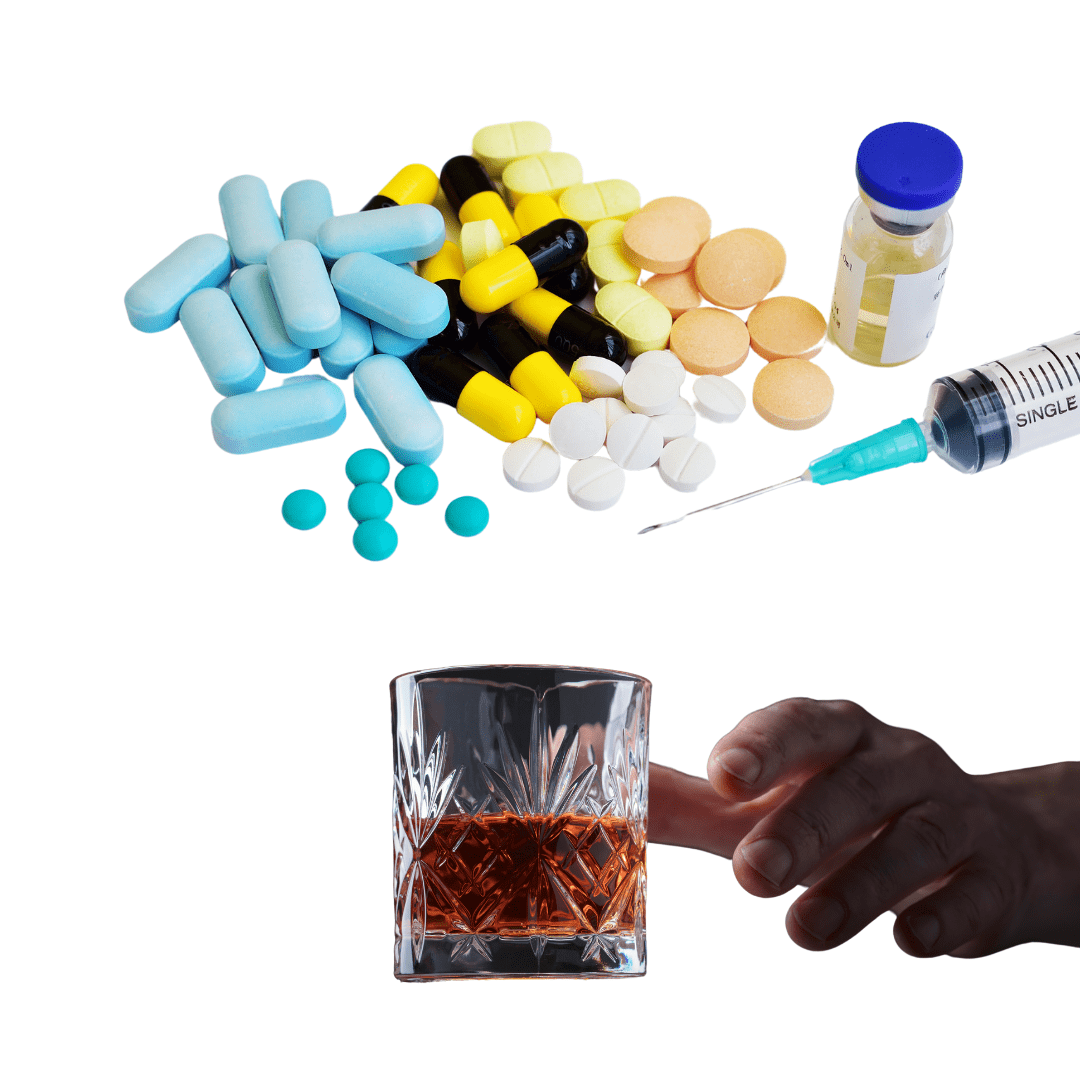
Some people who take anti-obesity medications drink less alcohol. Scientists are trying to figure out why this happens.
How Anti-Obesity Drugs Impact Alcohol Use
Anti-obesity medications, such as Wegovy and Ozempic, may lower alcohol consumption. These drugs, called GLP-1 receptor agonists, are usually prescribed to help with weight loss and type 2 diabetes. However, new research shows they might also reduce drinking habits.
A recent study found that 45% of people on these drugs drank less alcohol. The study, published in JAMA Network Open, involved over 14,000 participants. Researchers believe this connection could lead to more discoveries about these medications.
Key Findings
Here’s what the study revealed:
- Participants: Over 14,000 individuals taking anti-obesity medications.
- Results: 45% of drinkers reduced their alcohol intake.
- Drugs Used: Medications included semaglutide, tirzepatide, and liraglutide.
- Who Benefited Most: Heavy drinkers and people with severe obesity saw the biggest change.
While most participants saw no change, only 2% drank more alcohol.
Why Do These Drugs Affect Alcohol?
The exact reason remains unclear.

However, experts have a few ideas:
- Impact on the Brain: These drugs may reduce cravings by changing how the brain processes rewards. This could lower the desire for alcohol.
- Lifestyle Changes: Many people make healthier choices while on these medications, such as eating better or drinking less.
- Lower Tolerance: Weight loss reduces alcohol tolerance, which might lead people to drink less.
More research is needed to confirm these theories.
Can These Drugs Treat Addiction?
Some experts are hopeful these drugs could help with addiction in the future. However, they are not currently approved for this use.
Dr. Timothy Brennan from Mount Sinai said, “These findings are exciting, but we need more studies to understand their effects on alcohol use.”
Researchers believe these drugs have potential, but it’s too early to draw conclusions.
Should You Avoid Alcohol While Taking These Medications?
You don’t have to stop drinking completely, but experts suggest being cautious.

Here’s why:
- Side Effects: Alcohol may worsen nausea or low blood sugar, which are common side effects of these drugs.
- Calories: Alcohol contains a lot of calories, which could slow your weight-loss progress.
- Health Benefits: Reducing alcohol may improve overall health and make the medication more effective.
If you’re starting a new medication, it’s a good time to evaluate your drinking habits.
What Should You Do?
If you’re prescribed medications like Wegovy or Ozempic, consider these tips:
- Notice if your cravings for alcohol change.
- Take this chance to build healthier habits.
- Talk to your doctor if you have concerns about drinking or other side effects.
What’s Next?
The link between anti-obesity medications and reduced drinking is fascinating. Scientists need more studies to understand how these drugs work.
For now, they remain a powerful option for weight management. The added benefit of possibly reducing alcohol consumption is an exciting bonus.
Health
How to Get Rid of Sulfur Burps: Effective Remedies and Prevention Tips
Published
1 year agoon
November 5, 2024By
Wilson Mark
Sulfur burps may be alleviated by changes in diet, proper water intake, and the use of pharmacy drugs, but it is crucial to know what causes them.
Sulfur Burps
Sulfur burps are bad-odour burps that smell like rotten eggs; many people experience this.
They can be painful and awkward and are sometimes coupled with other abdominal symptoms, including bloating, stomach-churning, or diarrhoea. The foul smell associated with sulfur burps emanates from hydrogen sulfide (H2S) generated inside your stomach.
To know how to treat and get rid of sulfur burps, it is essential to understand the causes that contribute to it.
This article will look at possible causes of sulfur burps, options for natural cure remedies, medical treatment, and ways of avoiding them.
What Causes Sulfur Burps?
Sulfur burps occur when hydrogen sulfide gas builds up in the stomach and is released through burping.

Various factors can contribute to the production of this gas, but here are the most common causes:
- Dietary Choices
Certain foods high in sulfur content can contribute to the production of sulfur gas. Some of these foods include:- Eggs
- Meat (especially red meat)
- Cruciferous vegetables like broccoli, cabbage, and cauliflower
- Garlic and onions
- Dairy products
- Beans and legumes
- Gastrointestinal Infections
Some infections, particularly those caused by bacteria like Helicobacter pylori or parasites like Giardia, can lead to sulfur burps. These infections can disrupt your digestive system, leading to excess gas production. - Indigestion or GERD (Gastroesophageal Reflux Disease)
Indigestion or GERD can slow digestion, allowing food to sit in the stomach longer and produce more gas. This gas can sometimes have a sulfurous smell, leading to sulfur burps. - Food Intolerances
Lactose intolerance, gluten sensitivity, or other food intolerances can cause incomplete digestion of food, leading to gas buildup and sulfur burps. - Medications
Some medications, particularly those containing sulfur compounds or antibiotics that affect the balance of gut bacteria, can contribute to sulfur burps.
Natural Remedies to Get Rid of Sulfur Burps
Although passing sulfur burps might be embarrassing, in most cases, they can be cured naturally. Below, I give you some home remedies that may help if you decide to try:
1. Stay Hydrated

Proper digestion requires that one drink enough water, which is determined by the intensity of the exercises. Drinking fluids eliminates accumulated toxins, thus ensuring the digestive system is working properly, and there is less likelihood of developing gas. Avoid sulfur burps by taking at least eight glasses of water per day.
2. Green Tea or Herbal Teas

Green tea, mint, or chamomile will also relax your tummy and reduce gas formation. Green tea, in particular, has antioxidants that can help with digestion, while peppermint helps to relax the gut.
3. Eat Smaller, More Frequent Meals

Eating large meals or taking more than necessary also puts pressure on the digestive system, resulting in information of gases, including sulfur. Dividing the portions into smaller meals that are taken frequently ensures that the body can break down the food into Sulphur without experiencing sulfur burps.
4. Avoid Sulfur-Rich Foods
If you experience sulfur burps often, you should reduce the intake of sulfur-containing foods such as eggs, broccoli, garlic, and dairy products. These foods may cause more gas production; therefore, cutting down or eliminating these foods from the diet may greatly help.
5. Try Apple Cider Vinegar

Apple cider vinegar (ACV) is one of the go-to home remedies for enhancing digestion. ACV has an impact on balancing the level of acidity in the stomach, hence facilitating the digestion of foods and decreasing the formation of sulfur gas. Ingest a glass of water mixed with 1 tablespoon of ACV, and see if it is taken before meals.
6. Use Probiotics
Probiotics are beneficial bacteria that promote healthy digestion by balancing the gut’s bacterial environment. Taking a probiotic supplement or eating probiotic-rich foods like yogurt, kefir, or sauerkraut can help prevent sulfur burps by keeping your digestive system balanced.
Over-the-Counter Remedies for Sulfur Burps
Several over-the-counter treatments are available if natural remedies aren’t enough to resolve your sulfur burps.
1. Antacids
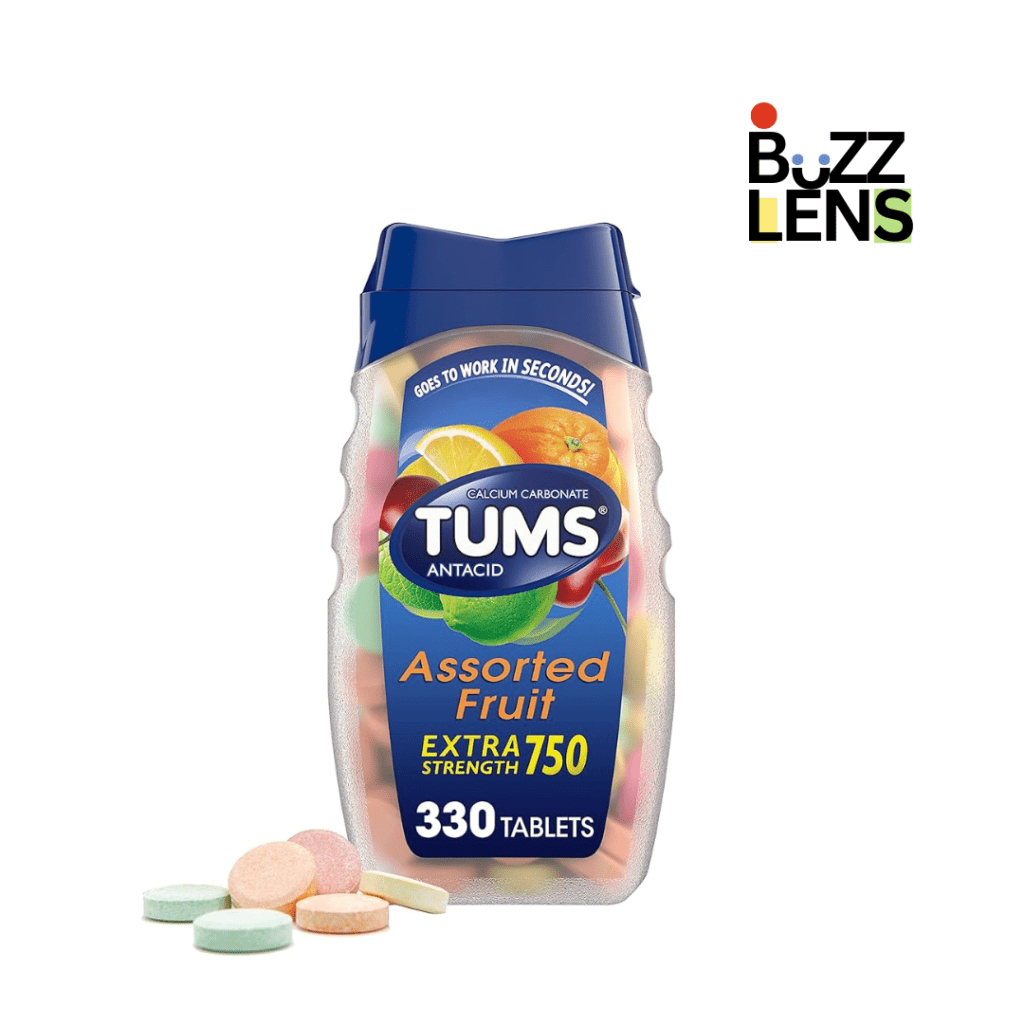
Many recipes warn about foods that produce gas, but antacids can help neutralize stomach acid and leave your digestive system to do the work. This may be useful, especially if the sulfur burps originate from indigestion or GERD.
Table: Best OTC Medications for Sulfur Burps
| Medication Type | How It Helps | Example Products |
|---|---|---|
| Antacids | Neutralize stomach acid | Tums, Rolaids |
| Simethicone | Breaks up gas bubbles in the stomach | Gas-X, Mylanta Gas |
| Probiotics | Supports gut health | Culturelle, Align, Florastor |
2. Simethicone
It is an anti-gas drug that alters the sizes and distribution of gas in the stomach and intestines, promoting gas release without the smell.

Simethicone-containing products such as Gas-X or Mylanta Gas quickly relieve such pain.
3. Activated Charcoal
Charcoal is effective in absorbing gases and toxins in your stomach. The common formulation is a pill that can successfully minimize normal gas and sulfur-related burps.
Always check with your doctor before using charcoal supplements, as they may interfere with medications.
When to See a Doctor for Sulfur Burps
While sulfur burps are often harmless, they can sometimes signal an underlying health issue that requires medical attention.
If your sulfur burps are persistent or accompanied by other symptoms, such as severe abdominal pain, diarrhoea, nausea, or vomiting, it’s time to consult a doctor.
Here are a few conditions that may require medical evaluation:
1. Gastrointestinal Infections
As mentioned earlier, infections like H. pylori or Giardia can cause sulfur burps and other symptoms like bloating, nausea, diarrhoea, and stomach cramps. Testing for these conditions often involves stool, blood, or breath tests.
2. GERD or Chronic Indigestion
GERD or chronic indigestion can lead to frequent sulfur burps due to slowed digestion. If you experience heartburn, regurgitation, or pain after eating, consult a healthcare provider for proper diagnosis and treatment.
3. Food Intolerances or Sensitivities
Food intolerances, such as lactose intolerance or celiac disease, may cause sulfur burps. Your doctor may recommend elimination diets or tests to identify specific food triggers.
Prevention Tips: How to Stop Sulfur Burps from Coming Back
Once you’ve gotten rid of sulfur burps, preventing them from returning is essential. Here are some long-term strategies you can follow:
1. Monitor Your Diet
Pay attention to how certain foods affect your digestive system. Keeping a food diary can help you identify which foods trigger your sulfur burps so that you can adjust your diet accordingly.
2. Eat Slowly and Chew Thoroughly
Eating too quickly can cause you to swallow air, leading to gas and burping. Chewing food thoroughly helps your digestive system break down food more efficiently, reducing the chance of sulfur gas forming.
3. Avoid Carbonated Beverages
Carbonated drinks like soda and sparkling water introduce extra air into your stomach, which can lead to burping. Try to cut down on these beverages to reduce gas and sulfur burps.
4. Exercise Regularly
Regular physical activity can improve digestion by keeping things moving through your gastrointestinal tract. Even light activities like walking after a meal can help prevent gas buildup.
5. Stay Hydrated
Hydration is vital to maintaining healthy digestion. Water helps break down food and keeps things moving through your digestive system, reducing the likelihood of gas formation.
Banish Sulfur Burps for Good
Sulfur burps may be unpleasant, but they’re usually treatable with dietary changes, natural remedies, and over-the-counter medications.
Whether you’re dealing with a one-time issue or chronic sulfur burps, identifying the underlying cause is the first step toward relief.
By adjusting your diet, staying hydrated, and trying some of the remedies outlined here, you can eliminate sulfur burps and prevent them from returning.
Remember, if sulfur burps persist or are accompanied by other severe symptoms, it’s essential to consult a healthcare provider to rule out any underlying health issues.


iOS 26 Explained: Stability & The Future of iPhones
Level up casino reviews Australia edition
Magnitude 5.1 Earthquake Rattles Northern Iran — No Major Damage Reported
Trending
-

 FASHION9 years ago
FASHION9 years agoThese ’90s fashion trends are making a comeback in 2017
-

 Entertainment9 years ago
Entertainment9 years agoThe final 6 ‘Game of Thrones’ episodes might feel like a full season
-

 FASHION9 years ago
FASHION9 years agoAccording to Dior Couture, this taboo fashion accessory is back
-

 Entertainment9 years ago
Entertainment9 years agoDisney’s live-action Aladdin finally finds its stars
-

 Entertainment9 years ago
Entertainment9 years agoThe old and New Edition cast comes together to perform
-

 Sports9 years ago
Sports9 years agoPhillies’ Aaron Altherr makes mind-boggling barehanded play
-

 Sports9 years ago
Sports9 years agoBoxing continues to knock itself out with bewildering, incorrect decisions
-

 Sports9 years ago
Sports9 years agoSteph Curry finally got the contract he deserves from the Warriors




